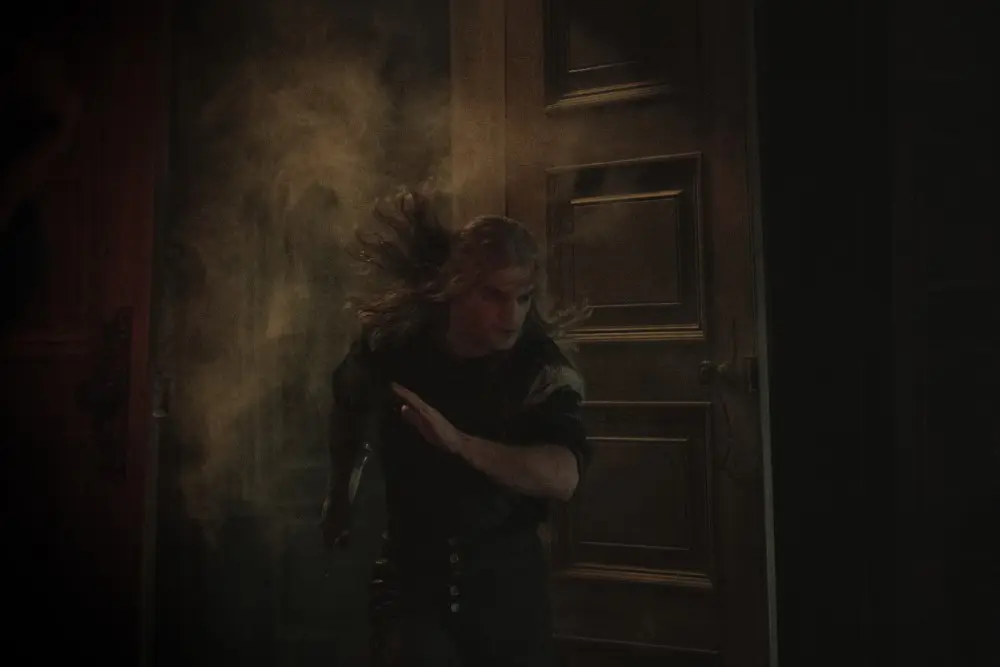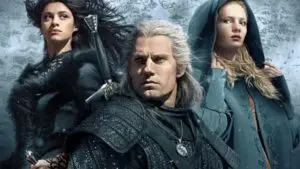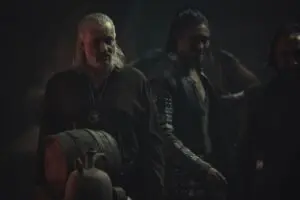Summary
“Kaer Morhen” boasts the usual high-quality VFX and action, but it also begins to form a much more coherent story arc for the second season.
This recap of The Witcher season 2, episode 2, “Kaer Morhen”, contains spoilers.
“Kaer Morhen” is divided, broadly, into two parallel plot strands, and it (almost!) totally abandons the usual monster-of-the-week structure in favor of much more obvious large-scale serialization. I’m mentioning this up top because it’s the start of a trend that characterizes this season; the idea of a much clearer and more coherent story that lays the groundwork for what one assumes will be several seasons of Netflix’s big-budget equivalent to Game of Thrones. That’s significant, since Apple TV+ weren’t able to pull it off with See, even though I love that show, and Amazon Prime don’t seem to be pulling it off with The Wheel of Time either.
The Witcher season 2, episode 2 recap
But anyway, the first plot finds Yennefer and Fringilla being taken away by elves after the cliffhanger ending of the previous episode, notably including Filavandrel, who is now playing second fiddle to Francesca. Yen’s a quarter elf if you recall, but her heritage doesn’t do her any favors among this crowd. (In the books and the games, the elves form part of the Scoia‘tael, a rebel movement fighting for nonhuman freedom, but nobody seems to be mentioning this in the show, and dwarves have barely featured at all. Perhaps it’s clearer to have just the one persecuted underclass). This entire thread is really in service of bigger worldbuilding duties since Yen, Fringilla, and Francesca are all having the same dream of a mysterious figure in robes. They each see the figure as a different person, and the robes as a different color, but shared dreams are always significant in fantasy stories, even though it’s a bit weird than none of these three very smart women find it odd that all three of them see exactly who they want to, and are told exactly what they want to hear by that person.
The outcome, though, is significant. After venturing deep into a crypt, the three women share visions at the same time, spurred on by a dreamlike journey to a cabin in the woods, and as a result, Fringilla and Francesca agree to ally the elves with Nilfgaard. The show hasn’t necessarily done the best job of explaining its large-scale politics, but this is significant, trust me. Yen, meanwhile, is focused on the loss of her magic, having realized that her powers have been gone since the Battle of Sodden Hill.
The other story strand sees Geralt and Ciri arrive at the titular Witcher keep, where they run into some faces that’ll be familiar to fans of the franchise, including Eskel, Lambert, and Geralt’s father-figure, Vesemir. The Witchers return to Kaer Morhen for the winter, and Geralt plans to protect Ciri there while also training her to protect herself. But that mission is almost immediately undermined by Eskel, who arrives fresh from a battle with a tree monster called a leshy, and pretty soon after floods the entire place with prostitutes.
There’s a lot of good character-building stuff for Geralt here. His fatherly approach to Ciri, particularly how annoyed he gets that she might see all the debauchery, is funny but also quietly charming, a hard man going soft. It’s also a good excuse for obligatory monster-fighting since Eskel is nursing an injury from the leshy that gradually turns into him becoming a tree monster of his own. The fact that leshies aren’t supposed to work this way raises an important question to be answered later, and the fact that Geralt and Vesemir are forced to kill him makes for a fun action sequence and a pretty emotional moment. At the end of the episode, Geralt begins to train Ciri, as well he might.
Within all this, very clear themes are beginning to emerge. One of them is family. This is obvious given Geralt’s relationship with Ciri, Vesemir, and the other Witchers, but it also manifests in other ways, such as Yen dreaming of having a child with Geralt. But there’s also another idea, that of people trying to claim what they believe themselves to be due, which comes through strongly in Yen’s loss of her powers and the elves’ loss of their land. Everyone needs a connection to something, after all, whether it’s another person, a place, or an idea, and if the world of The Witcher can be relied upon for anything, it’s wresting people away from that which they value the most.




